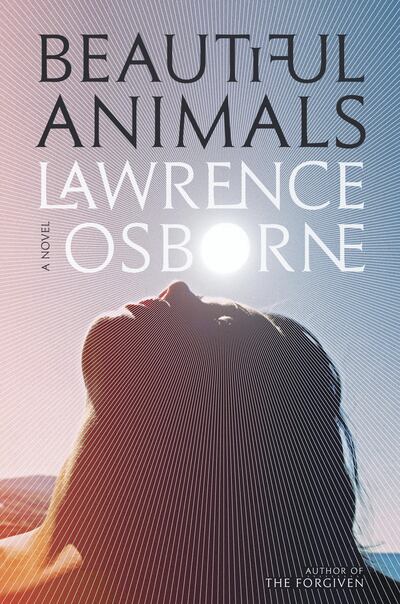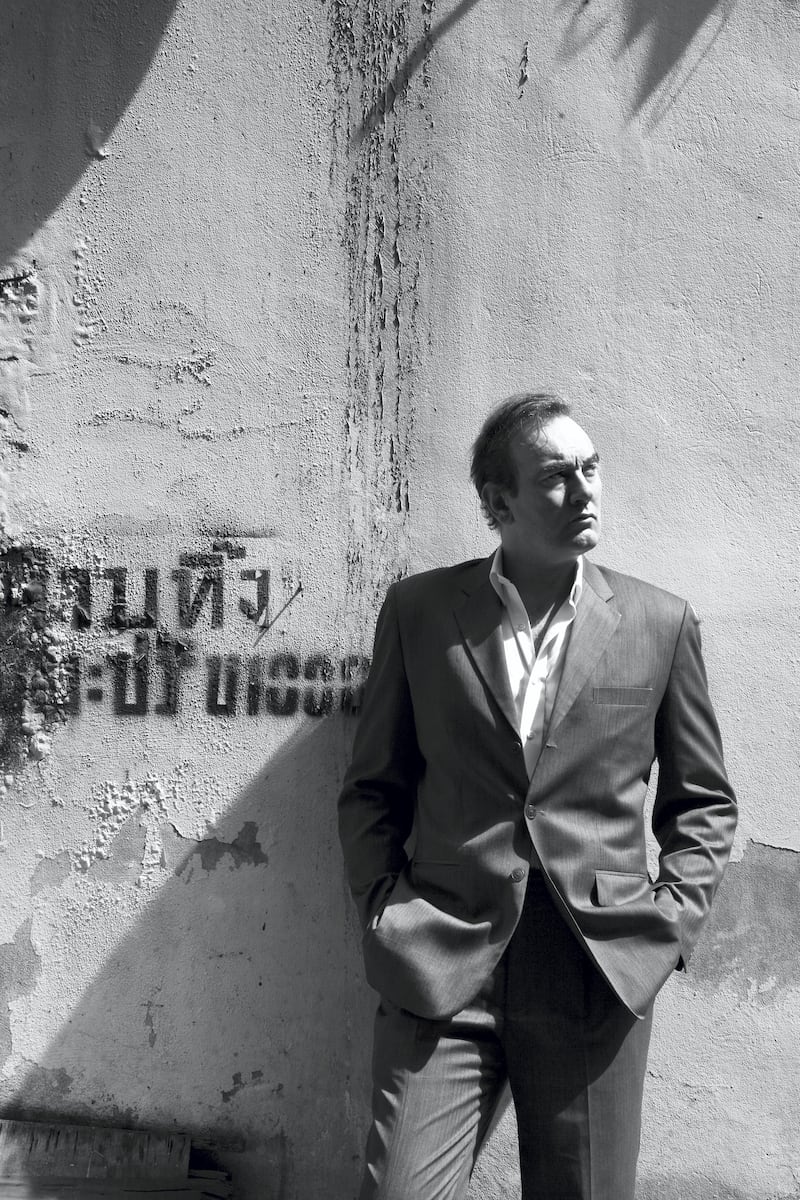In Lawrence's Osborne's compelling new novel Beautiful Animals, one of the main characters describes herself as "a student of human beings and their calamities". At the end of an entertaining hour in the company of her creator, I ask if this is also a valid description of Osborne.
"Yes," he answers promptly. "Isn't every writer that? The compensation with writing, aside from the money, is the fun of following your curiosity about people.
"I have this quiet interest in how people tick. And human beings do tick."
The Forgiven focused on a London couple wrestling with the consequences of a fateful drive – and a fatal accident – in the Moroccan desert. The Ballad of a Small Player (2014) and Hunters in the Dark (2015) charted the misadventures and double-dealings of two westerners in the Far East.
This is an area of the world that Bangkok-based Osborne knows well. However, it took him many years to settle there. Born in 1958, Osborne spent his early years in London and then went to Cambridge University ("I got an academic bee in my bonnet"). After a stint at Harvard he broke free and fled to France.
So began a lifetime of wanderlust, with travel here, there and everywhere punctuated by semi-settled periods in Italy, Morocco and Mexico.
Osborne became "obsessed" with Istanbul. New York ground him down.
He would have lived in Beirut "but then Hizbollah started doing some bad stuff. And the electricity always goes out. You're in the elevator and it stops and you're stuck there for two hours."
Osborne – a tall, dapper, gravel-voiced man – expounds on one exotic topic of interest after another: Japanese whisky and Italian churches, Thai silk and Mongolian cashmere, French TV and Korean cinema ("the only film industry that makes no concession to international popular taste").
_______________
Read more:
Book review: Julie Klam’s The Stars in Our Eyes is flimsy – even for a book on celebrities
Book review: Arthur Cotterell's The Near East sets out to tell the whole story of civilisation
An award for eloquence and intelligence: the 2017 Royal Society science book prize
_______________
For the next few days Osborne is here in Edinburgh to attend the International Book Festival. Amazingly for such a well-travelled man, it is his first time in the city. His initial impressions are positive. Interest gives way to excitement on learning that a nearby church contains the grave of one of his heroes, the English essayist Thomas De Quincey.
His other heroes include writers that critics claim have informed his novels: Graham Greene, Paul Bowles, Daphne du Maurier and Patricia Highsmith. "You always write the way people you like write – that's inevitable. You can never get around that and nor should you." But he is keen to stress that Bowles wasn't the inspiration for The Forgiven: "the reference was a book I love, André Gide's Algerian desert novel The Immoralist – and no one spotted it!" He doesn't get the Greene comparison. I tell him it is the far-flung locales, the fish-out-of-water characters and the moral ambiguity. "Yes," he agrees. "And that's the way I see the world."
And he has seen a lot of it. Travel hasn't just broadened Osborne's mind, it has provided him with a series of rich, immersive and wholly credible settings.
When I call them backdrops he corrects me.
"They are front-drops," he says with an infectious laugh. "My conviction is place produces character. Not just where you are born or brought up – that's obvious – but we are created by landscapes. I spent a lot of time in the Sahara for The Forgiven and I can't say how but the desert definitely changed me."
Osborne travelled a lot while working as a journalist for 20 years. His first big assignment was for The New York Times. "They sent me off to Nicaragua to write about deaf children and I learned sign language there. It was a humanity I had never seen before."
Another piece for the same newspaper gave him the inspiration for The Forgiven. "I was interested in trilobite fossils and in 2000 was asked to do a story on them. I went to these very remote places in Morocco to see how a trilobite would start in a quarry and then end up in an auction house and be bought by Bill Gates. This contrast between rich and poor was intriguing to me.
That book is now going into production but Osborne says that getting it published was virtually impossible.
"I had an agent but he refused to send it out to publishers. So one Friday night I sent it to an editor. He was on a train going back to New Jersey and by the time he got to his station he called me and said, 'We'll talk on Monday'. I sold that novel over a weekend."

His new novel is something of a departure as it is his first to be set in Europe. An absorbing psychological study of greed, loyalty and cultural conflict, Beautiful Animals begins with two girls helping a Syrian migrant who has washed ashore on the Greek island of Hydra, and soon spirals into manipulation and murder.
Osborne didn't set out to write a book about the migrant crisis. "I planned to write about the Greek crisis," he explains. "On some Greek islands the shops are empty but on wealthy Hydra they are all full. So there is this schizophrenia inside the Greek world which really interested me. I also wanted to write a book about parricide and two girls. But once I set it on Hydra I thought it would be foolish to ignore what's going on there."
Still, Osborne's novel isn't "about" a crisis or a conflict and he disagrees with the idea of writing a novel around one. "The big idea is like a big train coming down a track about to hit you." He is equally critical of authors who make short field-trips for settings and only scratch the surface of a place. Osborne stays for long stretches, learning customs and values, languages and landscapes.
"John Banville is an amazing writer," he says, "but I will fault him for not setting foot in Los Angeles for his Philip Marlowe novel [The Black-Eyed Blonde]. I think you have to live in a place or at least go there a lot before you write about it. Raymond Chandler lived in LA and he got the sticky, sweaty, asphalt-y feel of the place. Banville's book doesn't have that."
There is a reason why we are talking about Chandler. Osborne, like Banville before him, was commissioned to write a Philip Marlowe continuation novel. It will be published next year. "I set it in Mexico and Southern California, two places I lived in. But I didn't want to write about the '50s, when I wasn't alive, so I thought I'd make Marlowe an old man in his late seventies so I could situate it in the '80s. I thought that if he had a disappointed old voice it would be more interesting because then it would be more about mood than plot."
But ultimately it is place that matters. "The Quiet American is great because Graham Greene understands Vietnam and the rhythm of those cities. He understands what there is to love about them, and when you get somebody who is writing about what he knows he loves and why he loves it, that's very powerful."
Along with a new hardboiled case for Marlowe, Osborne has just finished his first Bangkok novel. "I don't know if I'll publish it but I wrote it because I felt I ought to get it out my system." He describes the city he currently calls home as "mysterious". But if anyone can capture and convey Bangkok's mystique, both accurately and thrillingly, it is Lawrence Osborne.






